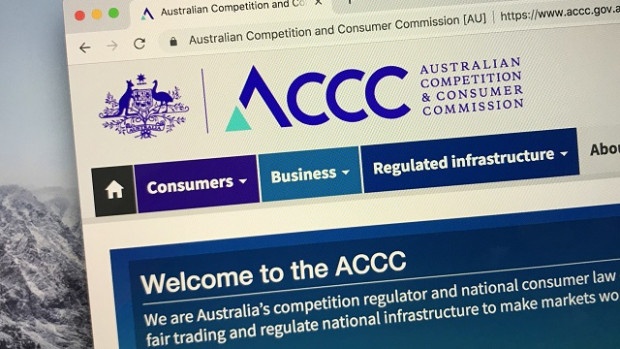
The consumer watchdog has warned that Australian lives may be at risk as millions of products subject to voluntary recalls float around the economy, endangering public safety.
New figures released by the Australian Competition and Consumer Commission (ACCC) on Monday reveal as many as half of the 6.6 million products currently under voluntary recall are still likely in Australian homes.
It comes just a few weeks after the watchdog revealed more than 400,000 vehicles subject to the Takata airbag recall had not been serviced, despite months of sustained awareness campaigning.
Amid an explosion in cross-border e-commerce over the last decade increasing the number of products flowing into Australia every day, regulators are increasingly worried that product safety is taking a hit.
The ACCC and others are stepping up their campaign for an overhaul of Australia’s product safety system in the wake of Treasury floating models for a new “safety duty” on businesses.
Under laws being considered in ongoing Treasury consultation, which kicked off earlier this month, businesses across the country may need to pay closer attention to product quality and ask manufacturers for additional information about imported stock.
Under one version of the plan, companies would be forced to abide by new prescriptive product safety standards, while another would see the ACCC given product intervention powers, similar to those recently extended to corporate regulator ASIC.
Noting the start of a global recall campaign on Monday, the ACCC reiterated its call for tougher protections, recommending consumer law be strengthened to force companies to take “reasonable steps” to ensure they don’t sell unsafe products.
“Many people would be surprised to learn there is currently no law that requires businesses to not sell unsafe products,” ACCC commissioner Sarah Court said in a statement circulated Monday.
ACCC research canvassed by Treasury in recent weeks reveals unsafe products are estimated to cost the Australian economy $5 billion annually, causing about 780 deaths and 52,000 injuries.
About 650 consumer product recalls are issued each year, but because only half of the affected products are returned to sellers, about a quarter of households remain exposed to potential hazards, the ACCC said.
“We believe prevention is better than cure, and that legally requiring businesses to take steps to ensure the safety of their products before they enter the market is needed to protect Australian consumers,” Court said.
Product safety has been a recurring issue in Australia for some time, although not every company penalised under existing laws has paid dearly.
Back in February, retail chains Target and Baby Bunting were together fined just $63,000 for selling “unsafe” convertible baby strollers for several years.
The penalties equated to less than 1% of both retailers’ respective half-yearly revenues.
Amid the watchdog’s push for tougher laws, Treasury earlier this month released draft consultation on new regulations canvassing five regulatory options for a reformed product safety system.
Current options range from increasing education and industry engagement to the introduction of a new “safety duty”.
The duty could bring about a higher safety threshold than currently exists under consumer law, requiring traders to ensure they aren’t selling unsafe products by adhering to prescriptive requirements like guidelines.
Treasury has proposed two options for a new duty, either a model with prescriptive requirements that would toughen existing consumer law or a model aligned with existing regulations that would nevertheless require traders to take “reasonable steps” to ensure products are not unsafe.
Treasury also proposed effectively passing over ASIC’s new product intervention powers to the ACCC, such that the consumer watchdog would be able to make direct orders to address certain conduct.
Calls for tougher protections come as regulators contend with market trends that have made it more difficult to regulate product safety.
Treasury said the proliferation of global e-commerce in recent years has created a “greater challenge” in identifying and responding to unsafe products being sold to consumers.
“The potential risk to consumers increases where these unsafe products are directly imported by consumers or by small traders with limited experience with the product,” the department said in its draft consultation report.
The prospect of new regulation could affect all manufacturers, importers and retailers in Australia. Treasury said regulatory impact would depend on what existing product safety practices a company has.
For example, a company with safety procedures that exceed existing requirements may not be as affected as one which is currently lagging behind.
Treasury said compliance costs for small businesses could include asking manufacturers for additional information, paying better attention to product quality and checking for compliance with any mandatory standards that may be introduced.
“The increased compliance costs may also raise barriers for new small traders to enter the market, although the magnitude of this effect is not clear,” Treasury said.
Consultations close November 30.
This article was first published by Smart Company and has been shared with permission.





